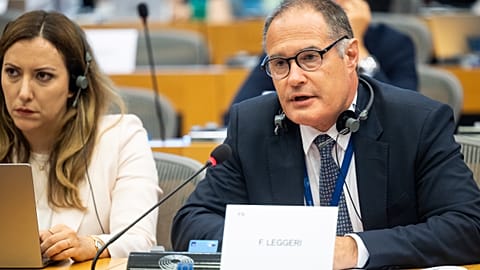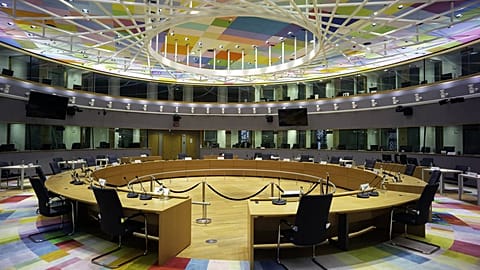More permanent solutions to tackling online crimes have run headlong into privacy concerns.
Lawmakers and governments today (15 February) agreed to extend a temporary solution to combat child sexual abuse material online, which will now be in place until 3 April 2026.
 ADVERTISEMENT
ADVERTISEMENT
 ADVERTISEMENT
ADVERTISEMENT
The deal comes as existing arrangements, under which companies can voluntarily scan their services, are set to expire on 3 August — while plans for a longer-term fix have raised significant concerns over privacy and encryption.
Today’s agreement will extend that system for another two years, a mid-way point between EU lawmakers who wanted a one-off extension to May 2025, and member states who favoured 2027.
The interim deal was needed as negotiators are still haggling over the proposal on child sexual abuse material (CSAM) put forward by the European Commission in May 2022, and are unlikely to strike a deal before elections due in June.
Detection orders
Under the 2022 plans, online platforms and service providers would have to detect, report and remove access to child abuse material, with national authorities given duties to prevent and prosecute.
A particularly controversial element, known as detection orders, would require digital messaging services to tap into users' encrypted messages. But the parliament's draft of the law acknowledges that those scanning technologies are not compatible with confidential, secure communications.
Birgit Sippel, the German socialist lawmaker in charge of steering the file through parliament, said in response to today’s deal that “the one-off fix will never be as good as permanent measures".
“Child sexual abuse is a horrible crime," she said in a press statement. "For this reason, we have agreed to extend the derogation currently in place that allows some companies to use technology to detect online child sexual abuse material."
Today’s provisional agreement needs to be formally signed off by both parliament and the member states before it can enter into law.

















